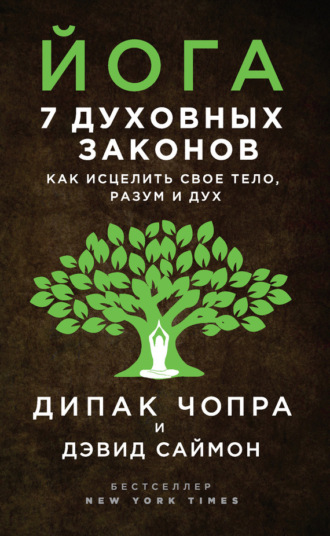Dipak Chopra Kvantovoe Iscelenie
Further recommendations • Any unused product licenses are listed under Other available licenses on the My licenses screen. The expiration date of your license appears under Licenses on this PC. Your Avast Internet Security license is now activated. You can activate your license on the number of PCs you specify when making the purchase. The number of PCs in your license is specified in your order confirmation email. Avast internet security final licence avastlic 2038 game.
817 quotes from Deepak Chopra: 'Every time you are tempted to react in the same old way, ask if you want to be a prisoner of the past or a pioneer of the future.' , 'Whatever relationships you have attracted in your life at this moment, are precisely the ones you need in your life at this moment. .net/ebookers/iscelenie-dushi-siloj-vashego-podsoznaniya-healing.pdf daily.ebookslibrary.net/ebookers/chopra-dipak-sem-duhovnyh-zakonov-dlya.pdf.net/files/vibracionnoe-celitelstvo-kvantovoe-ozdorovlenie-soznaniya-tela.pdf.
Citizenship American Alma mater Occupation Alternative medicine advocate, public speaker, writer Spouse(s) Rita Chopra Children and Parent(s) Krishan Chopra, Pushpa Chopra Relatives (brother) Website Deepak Chopra (; Hindi:; born October 22, 1946) is an Indian-born American author, public speaker, advocate, and a prominent figure in the movement. Through his books and videos, he has become one of the best-known and wealthiest figures in alternative medicine. Chopra studied medicine in India before emigrating to the United States in 1970 where he completed residencies in internal medicine and endocrinology. As a licensed physician, he became chief of staff at the (NEMH) in 1980. He met in 1985 and became involved with the (TM). He resigned his position at NEMH shortly thereafter to establish the.
Chopra gained a following in 1993 after he was interviewed on about his books. He then left the TM movement to become the executive director of 's Center for Mind-Body Medicine and in 1996 he co-founded the Chopra Center for Wellbeing. Chopra believes that a person may attain 'perfect health', a condition 'that is free from disease, that never feels pain', and 'that cannot age or die'.

Seeing the human body as being undergirded by a 'quantum mechanical body' composed not of matter but of energy and information, he believes that 'human aging is fluid and changeable; it can speed up, slow down, stop for a time, and even reverse itself,' as determined by one's state of mind. He claims that his practices can also treat chronic disease. The ideas Chopra promotes have been regularly criticized by medical and scientific professionals as. This criticism has been described as ranging 'from dismissive [to] damning'. Philosopher states Chopra attempts to integrate with to justify his teachings. Free download program wwii battle tanks t 34 vs tiger patch fr. Chopra argues that what he calls ' cures any manner of ailments, including cancer, through effects that he claims are literally based on the same principles as quantum mechanics. This has led physicists to object to his use of the term quantum in reference to medical conditions and the human body.
Has said that Chopra uses 'quantum jargon as plausible-sounding '. Chopra's treatments generally elicit nothing but a, and have drawn criticism that the unwarranted claims made for them may raise 'false hope' and lure sick people away from legitimate. Contents • • • • • • • • • • • • • • • • • • • • • • Biography [ ] Early life and education [ ] Chopra was born in, India, to Krishan Lal Chopra (1919–2001) and Pushpa Chopra. His paternal grandfather was a sergeant in the. His father was a prominent, head of the department of medicine and cardiology at New Delhi's Moolchand Khairati Ram Hospital for over 25 years; he was also a lieutenant in the British army, serving as an army doctor at the and acting as a medical adviser to, viceroy of India.
As of 2014 Chopra's younger brother,, is a professor of medicine at and on staff at. Chopra completed his primary education at in New Delhi and graduated from the in 1969. [ ] He spent his first months as a doctor working in rural India, including, he writes, six months in a village where the lights went out whenever it rained. It was during his early career that he was drawn to study, particularly, to find a biological basis for the influence of thoughts and emotions. He married in India in 1970 before emigrating with his wife that year to the United States. The Indian government had banned its doctors from sitting the American Medical Association exam needed to practice in the USA, so Chopra had to travel to Sri Lanka to take it.
After passing he arrived in the United States to take up a at in, where doctors from overseas were being recruited to replace those serving. Between 1971 and 1977 he completed residencies in at the in, the, and Beth Israel Deaconess Medical Center in Boston.
He earned his license to practice medicine in the state of Massachusetts in 1973, becoming in internal medicine, specializing in endocrinology. East Coast years [ ] Chopra taught at the medical schools of, and, and became Chief of Staff at the New England Memorial Hospital (NEMH) (later known as the ) in, before establishing a private practice in Boston in endocrinology. Was an influence on Chopra in the 1980s. While visiting New Delhi in 1981, he met the physician, head of the, whose advice prompted him to begin investigating Ayurvedic practices. Chopra was 'drinking black coffee by the hour and smoking at least a pack of cigarettes a day'. He took up to help him stop; as of 2006 he continued to meditate for two hours every morning and half an hour in the evening. Chopra's involvement with TM led to a meeting, in 1985, with the leader of the TM movement,, who asked him to establish an Ayurvedic health center.